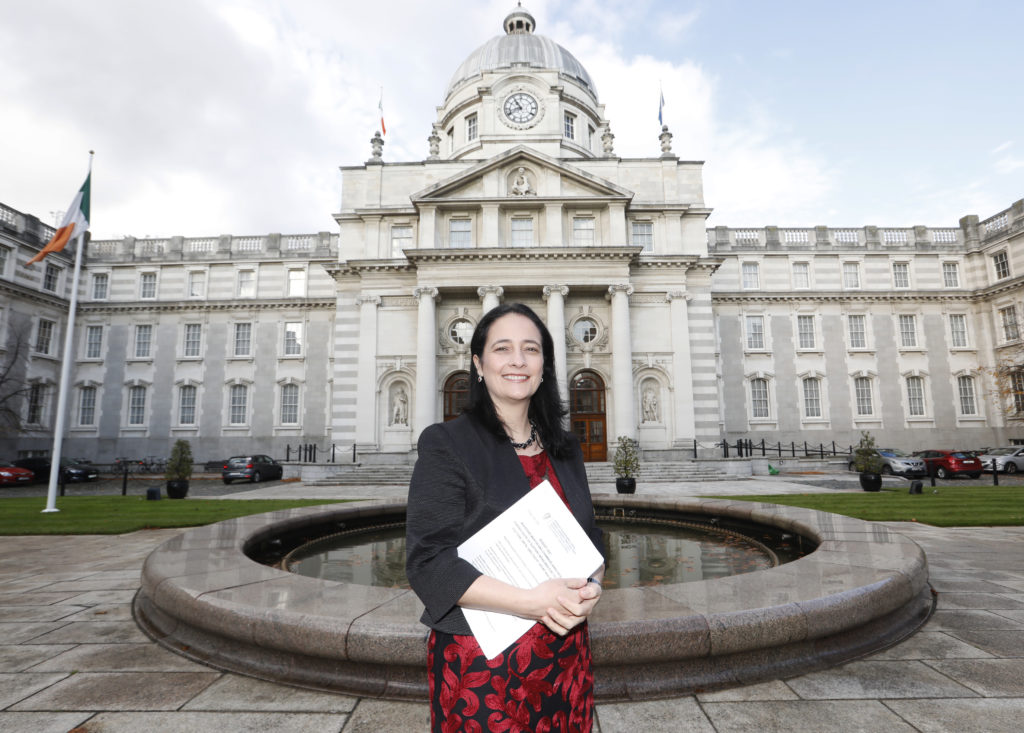THE Irish language group Conradh na Gaeilge has welcomed the government’s confirmation that new laws designed to preserve and promote the nation’s native tongue will be fully implemented by the end of the year.
President Michael D Higgins signed Ireland’s Official Languages (Amendment) Act into law on December 22, 2021.
The legislation introduced changes to the original Official Languages Act 2003 which increase the obligations on public bodies to promote the use of the Irish language across their services.
It requires government bodies in Ireland to increase their use of the Irish language in their marketing and advertising campaigns as well as in their public service provision.
They are also required to ensure the competency of their staff to provide such services.
This week the government confirmed that in the 12 months since the legislation was passed, they have made “significant progress” on implementing it.
They now predict their current schedule will see those provisions fully implemented by the end of 2023.
Highlighting the progress already made, Minister for Tourism, Culture, Arts, Gaeltacht, Sport and Media, Catherine Martin, and the Minister of State for the Gaeltacht, Patrick O’Donovan said their department had “been working diligently to implement all the provisions of the Act on a phased basis”.
Among their achievements to date, the Ministers highlighted an “increase in advertising through Irish” in the past year, as well as the establishment of the Irish Language Services Advisory Committee and an agreement made on a research contract for a National Plan for Irish Language Services.
 Minister of Tourism, Culture, Arts, Gaeltacht, Sport and Media Catherine Martin
Minister of Tourism, Culture, Arts, Gaeltacht, Sport and Media Catherine Martin“It was announced recently that the department has agreed a research contract with the University of Galway to undertake research that will form the basis of the preparation of the National Plan for Irish Language Services,” they confirmed.
“A value of €325,500 has been put on this contract and its agreement is key to the overall efforts involved in ensuring that the ambitious objectives of the Act are achieved - including the one relating to 20 per cent of recruits to the public sector being competent in Irish by 2030.”
They added: “Additionally, it is planned to run a large awareness campaign early this year focusing on the employment opportunities that exist for those with Irish in the civil and public service.
“It is intended that a regular awareness campaign, once a year or so, will be held to create awareness of specific aspects of the Act as and when they are commenced and developed.
“The department has also received additional staffing resources together with €1million of current funding in the 2023 Budget in order to consolidate and bolster efforts in this area.”
The Ministers went on to confirm their planned schedule to see the remainder of their legal obligations fulfilled this year, stating: “Assuming the full implementation of this commencement schedule, all material sections of the Act will have been commenced by the end of 2023 – a full year ahead of the three year timescale laid down in the Act.”
The Irish language group Conradh na Gaeilge has welcomed the government’s plan to implement the legislation fully this year.
President Paula Melvin said: “These provisions are important steps towards achieving the aims of the Act, and we commend the Minister Catherine Martin and Minister of State Patrick O'Donovan for the announcement of the timeline.”
She added: “Conradh na Gaeilge had previously put forward a number of the provisions to be implemented before the end of the year, with the support of the Irish language and Gaeltacht community.
“This includes parity for Irish on forms, service through Irish from private groups providing public services, usage of names in Irish with a síneadh fada and others.
“We are happy that other provisions that we proposed are already in effect, such as the goal that 20 per cent of the people recruited by 2030 will be competent in Irish and that 20 per cent of public bodies' advertising will be in Irish with five per cent of their advertising budget spent on the Irish media.”
Róisín Ní Chinnéide, Advocacy Manager with Conradh na Gaeilge, added: “It is important that we now have deadlines for the provisions from the Official Languages (Amendment) Act 2021 to come into force.
“As these dates are reached, we will continue working to ensure that public bodies and other relevant groups are fulfilling their duties under the new provisions.
“These deadlines allow enough time for bodies to prepare and to ensure they are complying with the Act when it comes into force.”

